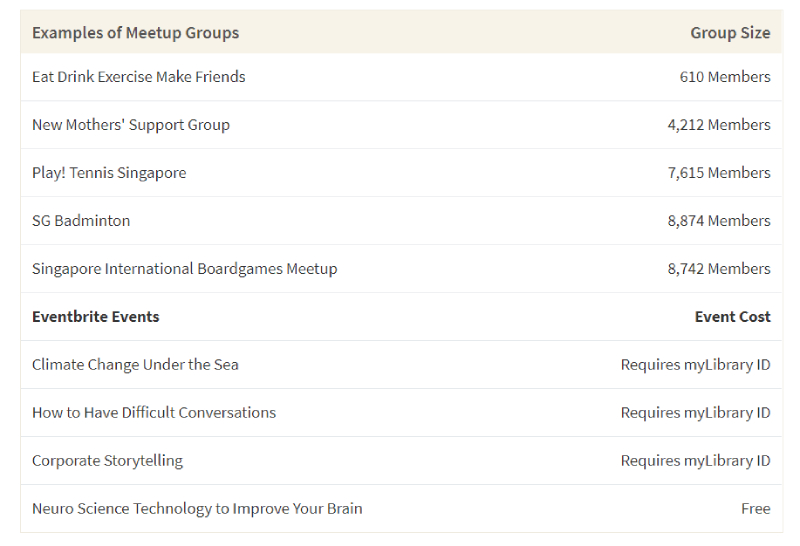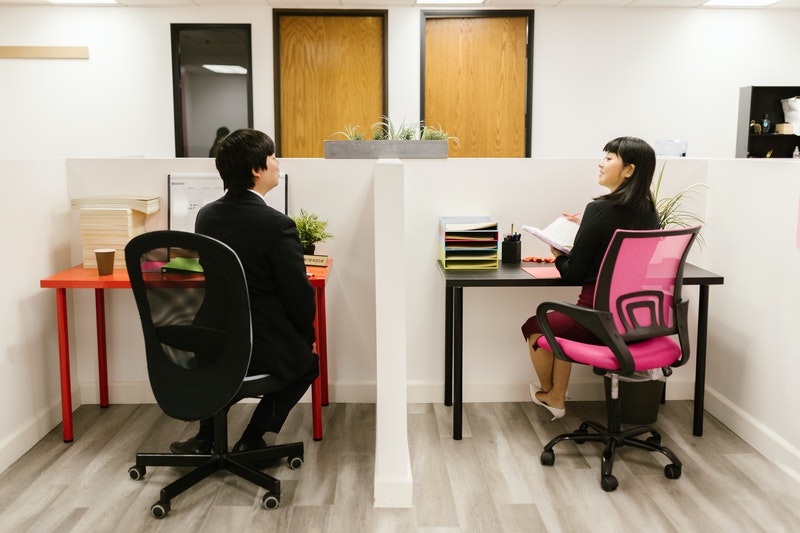In-person social interaction is more beneficial than you think for your career


A year after 2020's lockdowns, the impatience for things to get back to normal is felt globally. Singapore luckily avoided the brunt of the breakouts, so life was quick to return to near pre - pandemic levels.
However, despite the fast opening of the city, there is one important aspect of society that still hasn't gone back to normal — social interactions.
Work has overtaken socialising, with 61 per cent of Singaporeans noting that they socialise less with people outside their immediate families than they did before the circuit breaker measures took place.
However, with work - life balances already hanging by a thread, is socialising less really what our evolutionarily social species needs?
We explore some of the top, scientifically proven reasons why increasing social interaction will be the best thing you can do for yourself in the long - run.

One of the key benefits of socialising with others is that it helps you generate dopamine and oxytocin, while reducing your cortisol levels (the hormones that are related to stress).
Studies also show that having a dependable network of family, friends, neighbors (and now even coworkers) also reduces the risk of developing mental illness, reduces subsequent depression in people with heart conditions, and helps to foster resilience.
[[nid:486323]]
In the workplace, socialising with your colleagues can aid in reducing work - related stress.
In a study that looked at employees' perceptions of what reduces stress the participants who improved colleague relationships and support found that they were happier, improved their team dynamics and became more supportive.
While this doesn't mean that you have to distract your colleagues incessantly or bond over office gossip, it does mean that you should take the time to get to know your colleagues, foster a familial environment (if you're a manager) and confide in your close work companions to reduce stress and negative emotions in the workplace.

Beyond reducing stress and anxiety, which does plenty to improve cognitive function in and of itself, socialising also helps your brain process information, ideas and memories better.
Multiple studies have shown that engaging and talking to other people helps train your brain and improve cognitive function. In fact, the opposite — social isolation — is found to increase the risk of dementia and cognitive decline, especially in the elderly.
Furthermore, there is a clear distinction between socialising in person and seeing other people through virtual means, like via social media or webcam — especially when it comes to education.
A study exploring how socialisation impacts education split up infants who had to learn to distinguish two sounds in Mandarin into three different groups.
[[nid:521120]]
One group of infants had a native Chinese mandarin speaker engage and read to them, the other group only saw movies of the same Chinese speaker and a third only listened to the audio.
The results showed that the group that interacted with the speaker in - person had significantly learned to distinguish the two sounds, while the infants with virtual education showed no learning during that time period.
Despite us not being infants, this study may suggest that learning is best achieved through in - person interaction.
Thus, it is possible to extrapolate these findings and use them to your advantage in your career.
If you want to learn a new skill that can help your career progression, consider going to an in - person seminar instead of taking an online course.
At work, ask your boss or colleague how to perform a new task, rather than trying to find the answer from a YouTube video.
Not only do you get to interact with others in a meaningful way, but you'll be able to learn better thanks to theory of mind and improved mental stimulation.

Social interaction doesn't only mean speaking to friends and family over dinner or on the phone. Socialising more also means joining a new club, volunteering, learning a new skill with friends or signing up for lessons at your local gym.
If you don't know where to start, two great avenues to try are Meetup and Eventbrite. Meetup lets you search for a hobby or interest and then join the group where you will be able to meet up with people to engage in that activity.
Meetup groups span all sorts of hobbies like tennis, hiking, going out to eat or just hanging out. Eventbrite hosts events and classes that you can sign up for. Many of these events are free, so you don't have to spend a dime to meet new people and do something you love.

The bonus of learning a new skill or doing a new activity with a group of people comes with increased opportunities to network.
[[nid:510790]]
With networking being an important part of seeking a new job, it's hard to ignore interacting with other people if you want to gain new customers, attract new talent or get investors.
While you can send a message on Linkedin and hope you get a response back, you're hardly building the meaningful relationships that are necessary for successful networking. So in this case, in - person interaction while doing something you love can be highly effective.
For instance, if you take a tennis lesson, you'll meet up with other like - minded people who enjoy tennis. As you bond over a sport and work together (or against each other in competition), you can naturally build trust.
It becomes much easier then, to pitch your idea or gauge mutual career interests.

If you are nervous about socialising post - Covid, are shy or feel like you have no time to increase social interaction, it helps to start small. For instance, visit your family members on the weekend for a quick walk or a lunch rather than speaking to them on the phone.
If you are shy about joining new groups, you can ask a friend if they're willing to come with you for the first lesson or Meetup event. If you work debilitatingly long work hours, then you can suggest grabbing lunch with a coworker, rather than eating at your desk alone.
[[nid:474437]]
While socialising may seem like it's an optional aspect to our lives, it's actually one of the most important things humans can do to ensure a healthy and fulfilling lifestyle.
However, while it is important, make sure you are careful with how you choose your social interactions.
Avoid spending time with people who make you feel worse about yourself or spend hours scrolling through social media.
Attempt to weave in your social interactions with things that genuinely interest you and carve out time for your busy workday to detox with some friends and family. Your body and your boss will thank you for it.
This article was first published in ValueChampion.